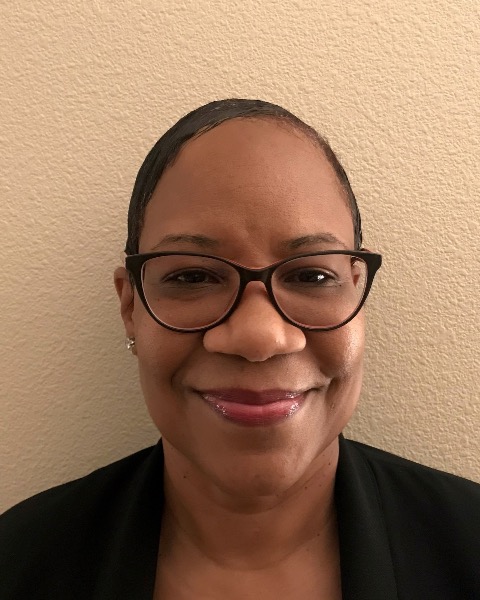Back
African Americans and the African Diaspora
Community-Based Approach to Mitigate Implicit Bias in Healthcare: Engaging the Black Church in Education/Training
Friday, November 11, 2022
1:15 PM – 2:15 PM
Location: Poster 18

Tarrisyna Bartley, LCSW
Doctoral Student
California Baptist University
Riverside, California, United States
Presenter(s)
Overview: In this pilot study, eight African-Americans were interviewed regarding their experience of seeking healthcare services for themselves or a loved one, including their views on the implicit bias of their provider and the role the Black Church could have in improving their health outcomes.Proposal text: In the United States, faith-based organizations involved in community engagement have resulted in successful partnerships to promote health and mental health well-being through education and training (Ayton et al., 2017). Collins et al., 2014 define the Black Church as having a predominately African American membership. According to Rowland et al., The Black Church is an essential organization in the Black community. It has been described as the epicenter, "serving as an educational institution, a social justice, and civil rights center, the emotional and psychological support for many African Americans in the community" (Rowland, ML et al., 2016, p 19). The Black Church also serves as an agent that promotes health and well-being to address the needs of disparities that have plagued Black communities for years (Rowland, ML et al., 2016). For this pilot study, eight African-Americans were interviewed regarding their experience of seeking healthcare services for themselves or a loved one, including their views on the implicit bias of their healthcare provider and the role the Church could have in improving their health outcomes. The interviews indicated that for African Americans, the experience with implicit bias was negative and affected the patient outcomes and continues to this day. All the participants in the study attend a predominately Black Church. They believe that the Black Church could serve as a vehicle to partner with the community to provide education and training to bring awareness and mitigate implicit bias in healthcare.
This presentation aims to heighten understanding and awareness of implicit bias in healthcare and provide strategies to address implicit bias during a healthcare encounter. Literature supports that faith-based organizations partnered with community stakeholders successfully promoted health and mental health through education and training. This presentation will focus on a community-based approach to mitigate implicit bias in healthcare by engaging the Black Church in education and training to promote better health outcomes. The community stakeholders (i.e., healthcare professionals from local hospitals and mental clinics, academia, and public health educators) will provide health fairs, mini-health series (live and taped), interactive activities, and a certificate of attendance. A social worker will offer empowerment strategies to help the church members and community become self-advocates.
The presenter will highlight the correlation between research and the interviews' results during this session. The presenter will also show a lack of trust in healthcare and confidence in the Church. This session will also discuss the community-based approach to education and training as an intervention strategy that can empower African Americans to advocate for themselves in promoting better health outcomes.
The learning objectives for this presentation are to (1) understand the historical implications of implicit bias in healthcare, (2) understand the effects of implicit bias on provider decision-making and patient health outcomes, and (3 ) Identify and learn specific strategies to self-advocate to mitigate implicit bias.
This presentation aims to heighten understanding and awareness of implicit bias in healthcare and provide strategies to address implicit bias during a healthcare encounter. Literature supports that faith-based organizations partnered with community stakeholders successfully promoted health and mental health through education and training. This presentation will focus on a community-based approach to mitigate implicit bias in healthcare by engaging the Black Church in education and training to promote better health outcomes. The community stakeholders (i.e., healthcare professionals from local hospitals and mental clinics, academia, and public health educators) will provide health fairs, mini-health series (live and taped), interactive activities, and a certificate of attendance. A social worker will offer empowerment strategies to help the church members and community become self-advocates.
The presenter will highlight the correlation between research and the interviews' results during this session. The presenter will also show a lack of trust in healthcare and confidence in the Church. This session will also discuss the community-based approach to education and training as an intervention strategy that can empower African Americans to advocate for themselves in promoting better health outcomes.
The learning objectives for this presentation are to (1) understand the historical implications of implicit bias in healthcare, (2) understand the effects of implicit bias on provider decision-making and patient health outcomes, and (3 ) Identify and learn specific strategies to self-advocate to mitigate implicit bias.
